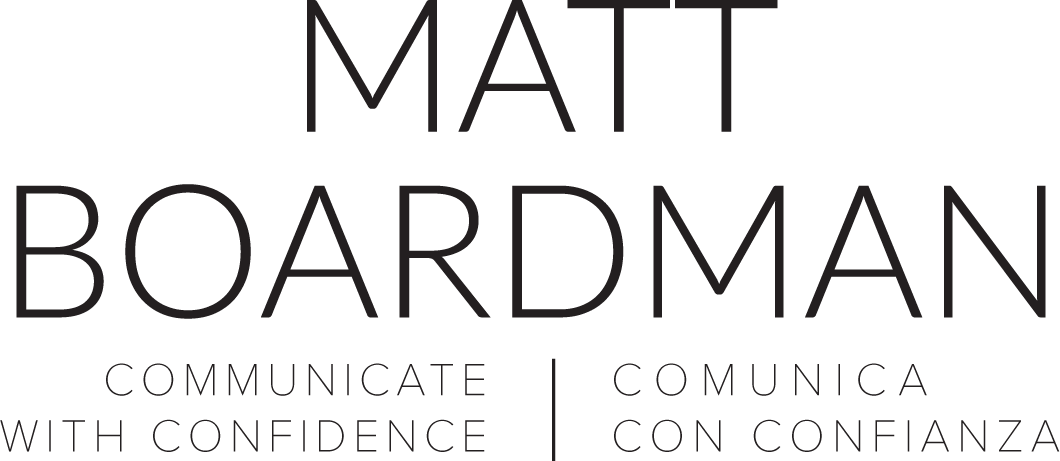Last month at Area 31 in Madrid’s IE Business School, I helped 9 impressive start-ups fine-tune their elevator pitches for the H20 Challenge. During a coaching session with one start-up, we discussed why less is more when it comes to PowerPoint. But you can also use this principle to make memorising your pitch easier.
Have you ever changed to the next slide, seen two long sentences and been forced to start reading them word-for-word until your brain remembers exactly what you’re trying to say?
Pitch rescue tip: You will remember your pitch, and present it more fluidly, if you memorise only 1-3 key words for each slide.
For example, your slide says:
Our start-up already has 30% of the funding we need, but we need another 20,000€.
This will allow us to move out of our CEO’s mother’s basement.
The danger of learning this slide by the blocks of text is that your brain is tempted to read it to your audience rather than speak it. The result is often that you sound more droid-like than human (investors always prefer humans), and that if for any reason you are interrupted mid-sentence it will be much harder to recover.
Common fears
My clients often want to learn whole sentences because of two fears:
- Fear: You don’t want to forget any details.
- Reality: Your brain is very capable of “anchoring” extra facts or figures to each key word and producing these without much effort.
- Fear: You are speaking in a second language and need perfect grammar.
- Reality: Your audience will quickly guess that you are not speaking in your first language (and if your accent is so perfect that they can’t, you probably don’t need to worry about your grammar) and will almost certainly have the intelligence to know that minor errors in grammar or pronunciation signal nothing about the validity of your pitch. I argue that the advantage of sounding natural when you speak outweighs sounding grammatically perfect.
Key words only
For the slide above, all you need to remember are one or two key words which act as “anchors” which your brain will use to automatically remind you of related concepts (see infographic).
There is one more advantage of memorising key words only: you are forced to learn the bare structure, or basic story, of your pitch. It is then much easier to see whether you’re telling it in the most effective order. Real clarity is always much easier if you strip down the pitch to its skeleton.
The bottom line
- Memorise just the key words of your pitch and you will speak it more humanly and find it easier to get back on track if distracted.
- Anchoring means your brain can automatically produce additional facts and figures related to each key word.
- Clearer story – reduce your pitch to the key words only you can see its basic story more clearly, changing it to make it even clearer for your audience.
What techniques do you use to memorise your pitch? I'd love to hear from you in the comments below.


